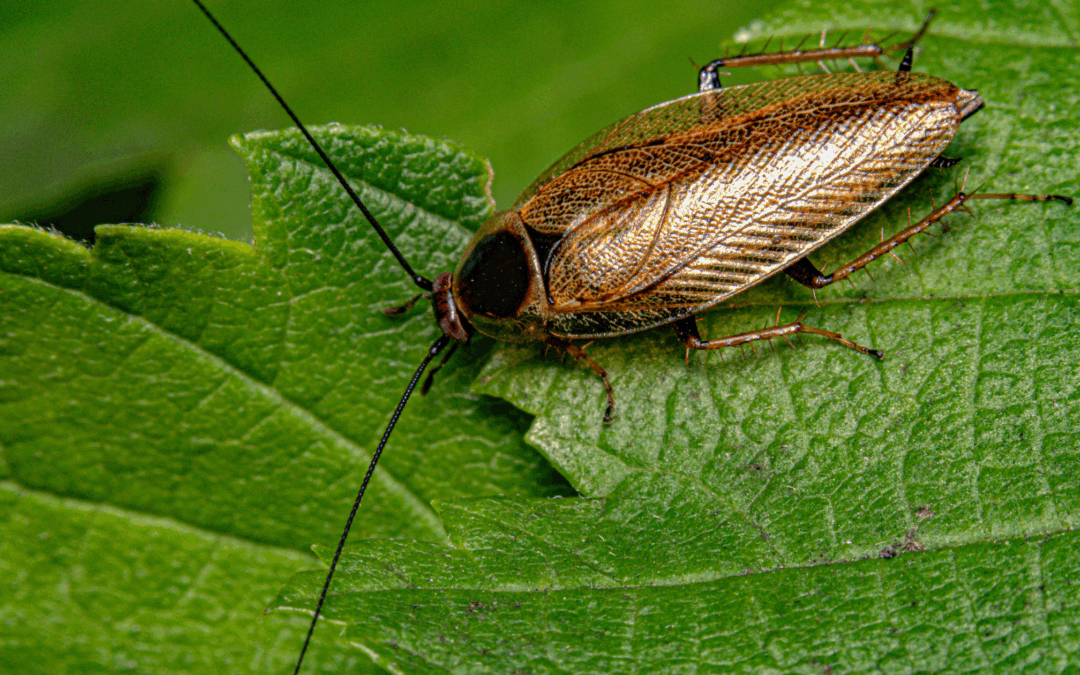READY TO GET STARTED?
REQUEST A FREE ESTIMATE
Fill out the form below or call (888) 466-7849 for a free, no-obligation estimate.

Alabama’s warm, humid climate makes it a hotspot for pests like fire ants, mosquitoes, termites, rodents, and cockroaches. These uninvited guests can disrupt your home’s comfort and even cause damage—but eco-friendly pest control strategies can help keep them at bay. Check out our guide to green pest control strategies you can use in your Alabama home.
Knowing what you’re up against makes prevention easier.
Using natural solutions protects your family and the environment while still keeping your home pest-free. Proactive habits like sealing cracks, reducing moisture, and using plant-based repellents offer long-term protection without harsh chemicals.
With a few smart steps, you can enjoy peace of mind and a pest-free home all year long—the eco-friendly way. Reach out to your local pest control experts to help you along the way.

Ghost ants are a common nuisance in Florida, especially during warm, humid months. Small but persistent, they often invade homes in search of food and moisture. Their pale, translucent bodies and dark heads make them hard to spot, and their ability to form multiple colonies indoors makes them tough to eliminate. Knowing where they hide and how to prevent them is key to keeping these tiny pests out.
Ghost ants are drawn to moisture and sweets, often showing up in kitchens and bathrooms. Here’s how to spot an infestation:
If you spot any of these signs, act quickly to prevent the problem from spreading.
Ghost ants are masters of staying out of sight, which makes them especially challenging to deal with. They can squeeze into incredibly tight spaces and establish nests in various hidden areas. Here are some of their favorite hiding spots:
Baseboards provide a discreet entry point as well as a cozy nesting area. These spots are particularly appealing in homes with moisture issues.
Leaky pipes and damp cabinets create ideal conditions for these ants. Inspect these areas frequently, as they’re a common hotspot for ant activity.
Ghost ants often nest within the moist soil of indoor plants, so be sure to check for unusual movement around your greenery.
Small spaces like electrical outlets or wall voids are perfect for these ants to build nests and expand their colonies unnoticed.
Ghost ants are drawn to food sources, and kitchen appliances often provide hidden crumbs and moisture. Check behind refrigerators, under toasters, and inside cabinets for signs of activity.
Ghost ants are persistent, but with a few proactive steps, you can keep them out.
Because ghost ants form multiple colonies, a persistent problem may need professional treatment.
Ghost ants may be tiny, but the inconvenience they bring is anything but small. By understanding the signs of an infestation and taking proactive steps to prevent them, you can keep your home ant-free and comfortable year-round. Contact a trusted pest control professional for expert advice and effective treatments to reclaim your home today!

Pest infestations can wreak havoc on businesses, impacting everything from customer confidence to regulatory compliance. Whether you operate a restaurant, retail store, or office building, pests can threaten your reputation, property, and bottom line. That’s where commercial exterminators come in. With year-round strategies and tailored solutions, these professionals work to ensure your business remains pest-free, protecting everything you’ve worked hard to build.
Pests don’t take vacations. They can pose risks to businesses during any season, turning what may seem like minor issues into costly problems. A single infestation could lead to:
By investing in professional pest control, you can prevent these risks and ensure the highest standards of cleanliness and health for your employees and customers.
Professional commercial exterminators conduct routine inspections to catch problems before they escalate. During these assessments, experts look for early warning signs like droppings, nests, or structural vulnerabilities, often targeting specific areas like storage rooms, kitchens, or utility spaces. Identifying and addressing these issues promptly saves businesses time and money down the line.
No two businesses are alike, and neither are their pest challenges. Commercial exterminators create tailored treatment plans based on the type of business, the pests most likely to invade, and the property’s layout. For example, a restaurant may require robust ant and fly prevention strategies, while a warehouse might focus on deterring rodents.
Customized plans often include eco-friendly solutions, allowing businesses to address pest problems without compromising employee health or environmental sustainability.
Exterminators don’t just stop infestations; they prevent them from happening in the first place. Common preventative measures include:
These proactive steps ensure your business is always one step ahead of potential infestations.
Investing in year-round pest control provides numerous benefits, going far beyond eliminating pests:
Commercial pest control experts provide essential services your business can’t do without. Their experience, customized solutions, and commitment to ongoing maintenance allow you to focus on running your business without the stress of dealing with pests. Whether it’s routine inspections, long-term prevention, or eco-friendly treatments, prioritizing professional pest control ensures your business remains a healthy, welcoming space for employees and customers alike.
Pests don’t belong in your workplace. Make the right choice today by partnering with a pest control professional to protect your business year-round.

Florida’s warm, humid climate is perfect for cockroaches, making homes vulnerable to infestations. These pests thrive in moisture, spread bacteria and allergens, and can trigger asthma. Fortunately, eco-friendly cockroach control strategies can help keep your home clean and pest-free.
Because of these factors, controlling cockroaches in Florida requires ongoing, proactive efforts.
You don’t need harsh chemicals to repel cockroaches—natural cockroach control methods are effective, healthier for your family, and eco-friendly.
Natural repellents offer a gentle, effective alternative to chemical sprays.
Prevention is key to keeping cockroaches away. A clean, well-maintained home makes it hard for them to settle.
Florida’s humid climate favors cockroaches, but eco-friendly steps like sealing entry points, fixing leaks, decluttering, and using natural repellents can keep them away. For persistent infestations, seek a pest control professional specializing in green solutions.

Keeping pests out of your business isn’t just about comfort; it’s about protecting your employees, customers, and reputation. Whether you operate a restaurant, manage a healthcare facility, or run a retail store, choosing the right commercial pest control partner is key to maintaining a healthy and thriving environment.
The best way to ensure you’re choosing the right provider? Ask the right questions. Below are the critical points to consider when hiring a commercial exterminator.
Every business has unique needs, from industry-specific regulations to building layouts and pest pressures. A strong pest control provider should tailor their approach to fit those needs.
At Northwest, we create customized plans built around your schedule and operations, ensuring your business stays protected without disruption.
Different industries face different challenges. Restaurants may be at risk for flies and roaches, while warehouses often face rodent infestations. Your pest control company should have the expertise to handle a variety of pests and prevent them from recurring.
We specialize in comprehensive pest management for all types of business environments, tackling everything from ants and spiders to rodents and cockroaches.
Today’s businesses demand pest control that’s both effective and environmentally conscious. Ask about the company’s commitment to healthy, sustainable practices that minimize their impact on people, pets, and the planet.
Northwest’s Green Pest Control solutions use smart, innovative methods to manage pests responsibly, giving you peace of mind alongside reliable results.
Pest control shouldn’t stop at a single treatment. Look for providers who offer preventative services, seasonal adjustments, and quick responses to new infestations.
With Northwest, you’ll benefit from proactive, year-round pest control focused on prevention, backed by responsive support whenever you need it.
Proper training and certifications are vital for quality pest management. Make sure technicians are licensed and continuously trained to stay current with the latest methods and updated protocols.
Our licensed professionals at Northwest undergo ongoing education to ensure they’re equipped with the expertise to protect your business.
Partnering with the right pest control provider isn’t just a decision; it’s a commitment to protecting your business’s health, protection, and reputation. At Northwest, we pride ourselves on delivering customized, eco-friendly solutions that keep pests out while respecting the unique needs of your business.
Get in touch with our team today to learn how we can help protect what matters most and keep your business pest-free all year long.